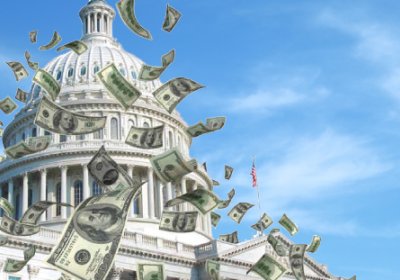Imagine trying to win public approval for the following scenario: detonate a hydrogen bomb in a remote region of the Pacific that has little contact with the outside world, in meteorological conditions guaranteed to spread radioactive contamination for hundreds of miles, then refuse to evacuate those affected for days finally taking the affected communities to research facilities for extensive and intrusive testing.
United States
Oil & Honey: The Education Of An Unlikely Activist
Bill McKibben
Black Inc., 2013
255 pages, $29.95(pb)
When the United States environmental writer Bill McKibben became a climate change activist, he discovered the delights of internet abuse and public meeting crazies, as he entertainingly describes in Oil and Honey.
"A new study by researchers from Princeton and Northwestern Universities finds that America's government policies reflect the wishes of the rich and of powerful interest groups, rather than the wishes of the majority of citizens," Gawker reported on April 15.
When Barack Obama was elected President in the 2008 election, it marked an historic first. An African-American was elected in the country noted for its oppression of Blacks since the time of slavery.
My next door neighbour, an African-American who knew my history as a supporter of the Black liberation upsurge of the 1950s, '60s and '70s, raised his fist in celebration when he saw me the next day.
The experts said that the efforts of the Northwestern University football (gridiron) team to form a union would crash and burn.
The experts scoffed that these naive jocks would lose their case before the National Labor Relations Board (NLRB). The experts all believed that this is what they call “settled law”.
In New South Wales, politicians have been debating a bill known as “Zoe's Law”, originally introduced by Christian Democratic Party’s Fred Nile.
Zoe’s Law aim to give legal rights to foetuses older than 20 weeks or weighing more than 400 grams. The law opens up the possibility of a pregnant woman being charged for damaging her own foetus.
United States President Barack Obama has received scorn for remarks made during a speech in Brussels on March 26. Obama defended the US invasion of Iraq in a bid to chastise Russia for its actions in Crimea and Ukraine.
Fending off repeated accusations that the US has lost its moral authority given the invasion of Iraq and other breaches of international law in recent years, Obama said: “Russia has pointed to America’s decision to go into Iraq as an example of Western hypocrisy. But even in Iraq, America sought to work within the international system.
Dianne Feinstein, chair of the Senate’s Intelligence Committee, lashed out against the CIA on March 11 in a sharply worded 45-minute speech that took other Senators by surprise.
President Barack Obama’s appointee to head the CIA, John Brennon, issued a denial a few hours after Feinstein’s speech, virtually charging her with lying.
It is no wonder that her speech was a bombshell. Feinstein has a well-earned reputation of being little more than a shill for the CIA, NSA and other spy agencies over the years.
The dangers of global warming due to greenhouse gases in the atmosphere is well-established. But there is more damage done by the capitalist system of production, including the release of toxins into the atmosphere, water and the rest of the biosphere.
Two notable examples have occurred in the first months of this year in the United States.
In January there was a huge spill of 10,000 gallons of crude MCHM, a chemical mixture used in the coal production process, into the Elk River near Charleston, West Virginia.
A New York judge has overruled the US$9.5 billion (A$10.5 billion) in compensation for toxic waste dumping that Chevron had been ordered to pay to Ecuadorian villagers.
The oil company, the world’s third largest, was found guilty in 2012 by an Ecuadorian court of causing huge environmental damages in the Amazon Basin. At the time, it was the largest environmental damages lawsuit ever.
Texaco oil company, which merged into Chevron Corporation in 2001, operated in the Sucumbios province of Ecuador, in the uppermost headwaters of the Amazon Basin, from 1964 to 1992.
Venezuela: OAS defies US to send gov't solidarity, Maduro calls for fresh dialogue amid new violence
The Organization of American States (OAS) approved a statement on March 7 expressing solidarity and support for the Venezuelan government in light of recent events. After two full days of heated debate at its summit, 29 states of the OAS voted in favor of a declaration lamenting the victims of protest-related violence in Venezuela, detailing the need for ongoing dialogue, and decidedly rejecting any intervention into, or sanctions against, Venezuela’s democratically elected government.
Around 6.40am on Feburary 19, a United States Border Patrol agent shot and killed Jesus Flores Cruz, a 41-year-old Mexican national, four miles east of the Otay Mesa port of entry to the US in southern San Diego.
Employing what has become an all-too-familiar explanation, authorities said Flores Cruz, an unauthorised migrant, pelted the agent with rocks. Reportedly fearing for his well-being, the agent shot his pistol twice, fatally wounding the alleged attacker.
- Previous page
- Page 99
- Next page








